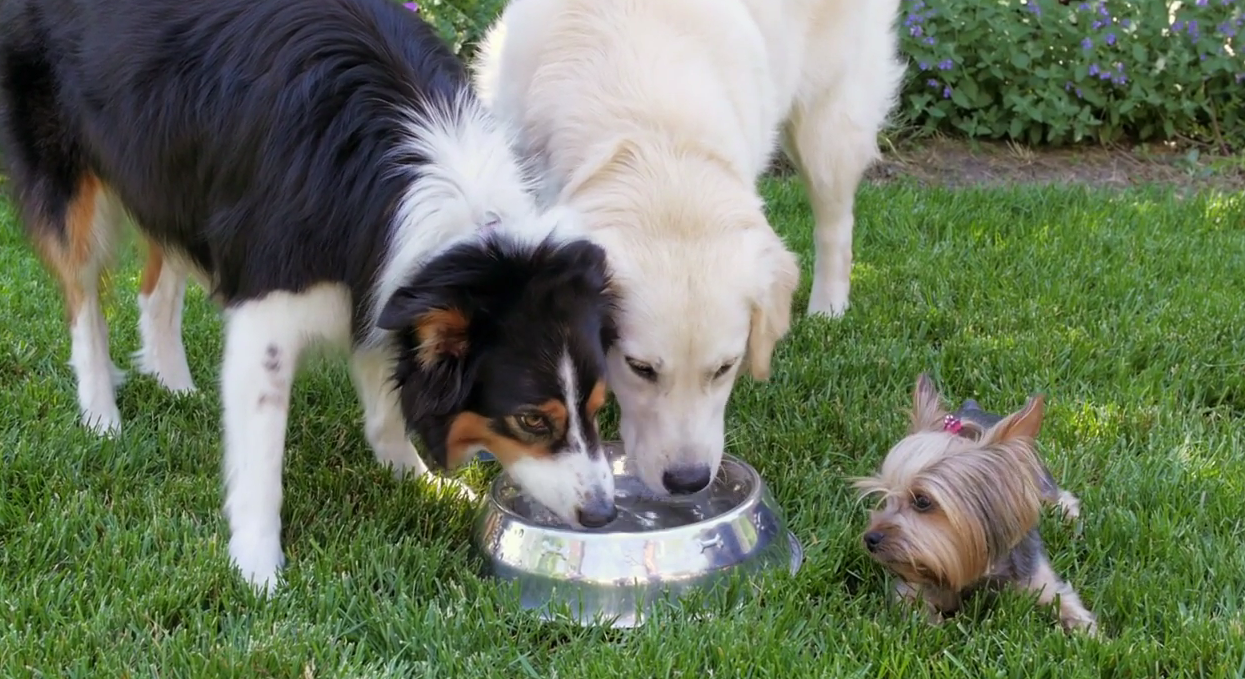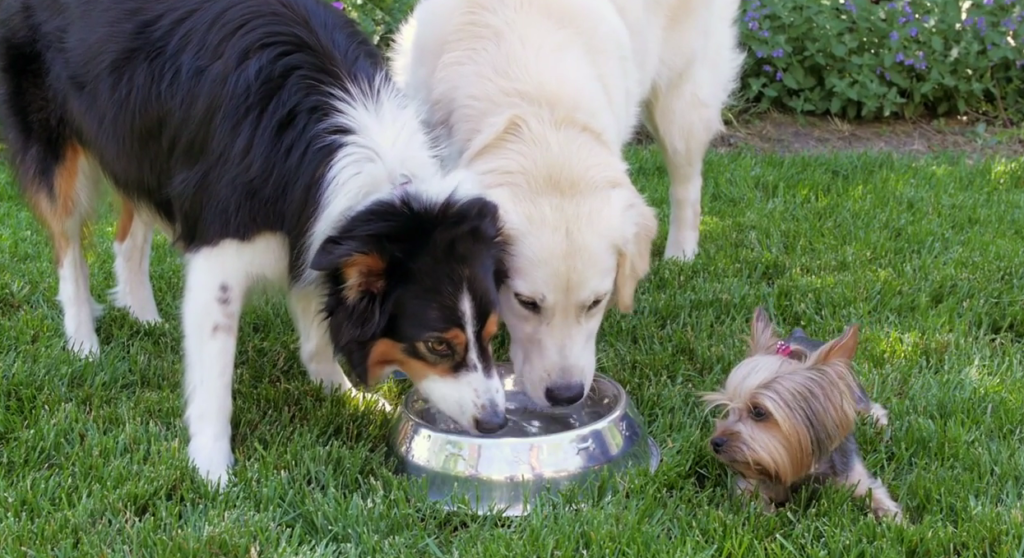Though the dog’s taxonomic family Canidae falls under the order Carnivora, dogs are not carnivores. Order Carnivora includes obligate carnivores, such as the Felidae family, it also includes the omnivorous Canidae and even the herbivorous Ailuropodidae – panda bears! This taxonomic classification has been so problematic as it has led many to infer that dogs are carnivores and require meat in their diet, which is not generally recognized as true.
My dog likes meat, doesn’t that mean he needs it?
When given a selection of foods, most animals will choose the foods which are the most energy- and nutrient-dense as a throwback to evolutionary survival tactics. At any given time, a wild canid, like a wolf, never knows when their next meal will arrive, and so they will preferentially choose to eat foods which provide them with the highest concentration of calories to keep them going. Animal flesh and organs just so happen to be very energy dense, containing a large amount of fat and calories, which appeal to animals worried about how long their next starvation period will be. However, I’m hoping if you’re reading this blog that you feed your dog regular meals and they don’t need to gorge themselves to survive! In that case, we can be much more flexible in how we feed our canine companions. In fact, feeding them very high calorie, rich foods can lead to all sorts of health problems. I love donuts, they provide me with a ton of calories, but if I ate donuts every day just because I like them I would pretty quickly wind up storing all those extra calories I don’t need – and we all know how extra calories get stored! I like donuts, but I don’t need them, and while dogs may like meat, they don’t need it.
If dogs are omnivores, doesn’t that mean it’s natural for them to eat at least some meat?
Let’s put this into context. Yes, dogs evolved eating other animals, and it is arguably natural for them to do so. Dogs also evolved living outdoors in social groups and with little interaction with humans for the majority of their existence. Now, dogs live indoors for the most part, often as a sole pet or sharing their house with one other dog or other animal. They are our fur-babies, their lives are intimately associated with ours, and they rely on us for their walks, their food, their engagement with the world around them. They don’t lead very “natural” lives. They also don’t typically eat the other animals (cats, small mammals, fish, birds, reptiles) they share their house with. It may be “natural” for dogs to eat meat, but it is also natural for them to be injured, feel pain and contract disease. By domesticating dogs, we have removed them from their natural environment and they have adapted to share their lives with us. We provide them with such unnatural lifestyles as climate-controlled homes, daily meals, pain relief, veterinary care and medication. Plant-based dog food is no less natural than any other way we currently manage our beloved companions.
What if my dog is a hunting or working type, do they have special requirements for meat?
While the scientific literature supports differences in nutrient metabolism and requirements for some different types of dogs, there is no evidence that any dogs require animal products in their diet.
If dogs don’t need meat, can they get all the nutrients they need from a vegetarian or vegan diet?
Yes. None of the essential nutrients required by dogs are found exclusively in animal tissues. In animal nutrition, we really prefer to talk about nutrient requirements, as opposed to ingredient requirements. As far as we know, dogs have no requirement for meat per se, instead, they have a requirement for nutrients
 Dr. Sarah Dodd is a veterinarian with a special focus on companion animal nutrition. Her studies have taken her around the world living in England, Scotland, New Zealand, Australia, the United States of America and Canada – where she currently reside with her three happy rescue dogs Peppa, Dottie and Timmy.
Dr. Sarah Dodd is a veterinarian with a special focus on companion animal nutrition. Her studies have taken her around the world living in England, Scotland, New Zealand, Australia, the United States of America and Canada – where she currently reside with her three happy rescue dogs Peppa, Dottie and Timmy.
She graduated from veterinary school in 2016, since then she has pursued her passion in nutrition with a clinical nutrition internship and a Master’s degree at the Ontario Veterinary College. She is currently completing her nutrition residency with the European College of Veterinary and Comparative Nutrition and enrolled in a PhD studying plant-based diets for pets.



What Do Vegans Feed Their Pets? | Pet Owners Care
[…] Due to the distinct differences in their physiology, we have to look at dogs and cats separately. Dogs are omnivores. Thanks in part to living with us for thousands of years (and enjoying food that “falls” off […]
Natalie
This is the most idiotic article from a “vet” I’ve ever read. First off, so your logo, “whole meat” is nothing more than a gimmick. So why charge more for meat in kibble if they can just be vegetarians? Nothing in this article convinced me they are omnivores either. Dogs don’t produce amylase in their saliva, their jaws and teeth are built for swallowing food whole (ever wonder why your dog doesn’t chew his kibble?) short digestive tracts, and the fact they can interbreed with a carnivore, wolves! Just because we’ve been feeding them substandard food for thousands of years doesn’t make them omnivores. They only have a few adaptations for tolerating this diet, but they thrive with meat based food. Which Halo seems to agree with considering the logo.
BJ
Dr Sarah Dodd,
Thanks for trying to add some common sense to the knowledge base. If we can get past my spouse who believes the marketing of her lifetime, our new dog will be going vegetarian by Christmas as we slowly change the dog’s diet from store brand with extra meat.